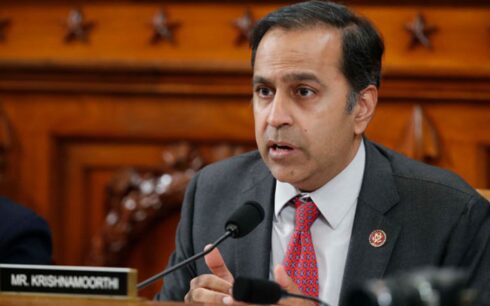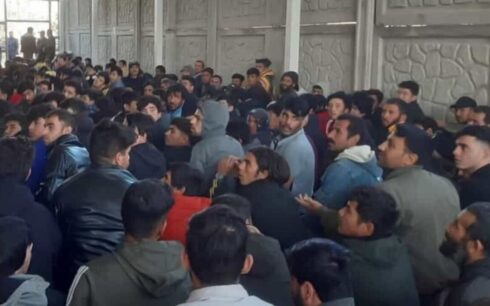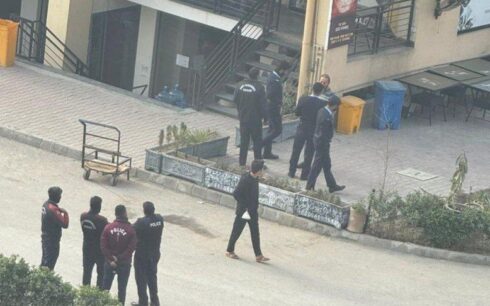At least 925 children who entered Iran illegally have been deported to Afghanistan over the past six months, Taliban officials said, adding that many of these children were separated from their families after crossing into Iran illegally.
The Taliban says these children have since been returned to Nimruz province.
Concerns are growing, however, of these unaccompanied children falling prey to the prolific human trafficking operations in Nimroz, which shares a border with Pakistan and Iran.
Nimruz has always been considered a “safe haven for human traffickers” as the province is the “gateway” for migrants from Afghanistan to Pakistan, Iran, Turkey and Europe.
It is here where migrants are passed on between traffickers from one city to the next, resulting in a lucrative business for these people smugglers.
However, concerns around unaccompanied child migrants being sexually abused by these human traffickers and used for hard labor is a serious concern.
Zahir’s story
Zahir is a 15-year-old boy, who spoke about his perilous journey to Iran. He said he entered Iran illegally a year ago.
Speaking to Amu, the boy said his father was a drug addict and his family had been plagued by hardships. Zahir said he would collect plastic from trash piles to sell in order to support his family but this did not earn him enough money so he traveled to Iran in search of work.
In Iran, he harvests and packs fruit for five million Tomans (around $130) a month in Bandar Abbas city. He said his mother had been struggling to find food therefore he was forced to travel to Iran illegally in search of work.
However, Zahir stated that some human traffickers involved in smuggling people are also known to sexually abuse children. “The smuggler was harassing my neighbor’s son inside the hotel. He [trafficker] tried to force me several times, but I screamed and shouted and he left me alone.”
Zahir stated that he paid five million Tomans to a human trafficker to get him to Iran from Nimruz. He said the journey took eight days and for two of those days he went without food. In addition, he was forced to walk long distances on an empty stomach, he said.
“At sunset, the [human] trafficker loaded 25 people into one car. After traveling for 10 hours in the hot desert of Nimruz we reached a forest. We spent three days in the forest. The trafficker then sold us to another driver. He drove the migrants to the border of Pakistan, where the smuggler had a hotel and the migrants were kept there until the security conditions were suitable [for us to move]. After that, we got into another vehicle on the other side of the Pakistan border and stayed there for two days until the border situation became normal, then the car left,” he said.
Zahir, who supports his seven-member family, said that they had also waited for 10 hours in cold weather “until police patrolling the area left and then they [traffickers] transferred us to another town.”
According to him, he used to live with relatives until he found work. “I work from 6 am up to 6 pm; because I have to do so,” Zahir added.
Saboor’s story
Saboor is another Afghan teenager who traveled to Iran illegally in search of work.
This 17-year-old told Amu TV that he went to Iran six months ago and had previously worked for a trading company in Herat. Following the collapse of the republic, the company closed down and he lost his job, Saboor said.
Poverty forced him to look for work in Iran so that he could earn money to support his eight-member family.
He said his first attempt to cross into Iran failed after Iranian forces opened fire on migrants trying to enter the country illegally.
“The Iranian border forces opened fire on the passengers, two of them were wounded, and the Taliban transferred them to Zaranj (the capital of Nimruz),” Saboor said.
“I traveled via the Pakistan route. Using an illegal route is difficult. It is like we passed seven iron mountains. The traffickers loaded us into a Toyota van and there were 20 of us in one car,” he said.
“We reached a resting area after one hour. Then we walked into the forest for two hours. Then they handed us over to the Pakistani driver. We traveled by foot for another two days in the forest until we reached the fenced border of Pakistan. We stayed there for two days, then we were handed over to the Iranian driver at the border of Iran, and we went to Mirjaveh and toward Zahedan by car,” he added.
“I owed seven million Tomans to the trafficker. I had to work and pay him back. I was working at a chicken processing company and had a monthly salary of three million Tomans,” he said.
A trafficker’s story
Sayeed Karim is one of countless human traffickers who has been transporting illegal Afghan migrants to Iran from Zaranj for two years.
According to him this business has become particularly lucrative as there has been an unprecedented increase in migrants following the collapse of the republic last year. He also said it’s not just human traffickers making good money but drug smugglers are also doing very well.
Karim said he transports migrants to Iran three times a week – using several different routes.
“We pay Iranian officials for each person,” he said, adding that a migrant pays between five million Tomans to 15 million depending on where they cross the border. He also said children get a “50% discount”.
“We transfer [passengers] through the Darvishk border for seven million Tomans, via the bridge for 10 to 15 million Tomans, for five million Tomans via the border wall, and for eight million Tomans via another route; and we offer a 50% discount for the children,” Karim said.
He also claimed that the Taliban charge 1,000 Afghanis for each migrant at the loading area. “But when the Iranian forces shoot people, the Taliban arrest the smugglers and bring the passengers back to the city,” he added.
Based on reports published by the Taliban’s directorate of refugees and repatriation, around 2,000 people enter the country from the Nimruz border on a daily basis.
Sediqullah Nusrat, head of the directorate stated: “Around 190,000 refugees have returned to the country over the last six months, some were forced [to return] and others volunteered.”
Taliban to “deal” with the traffickers
Taliban security officials have said they will take serious steps to fight the human trafficking syndicates. Mohammad Ebrahim Hewad, the commander of the third border battalion of the Taliban in Nimruz, said: “All illegal routes at border areas with Iran have been blocked for three months now and legal action is taken against human traffickers who are arrested while transporting passengers.”
He called on Afghans not to leave the country, stating: “If you want to travel abroad, go legally so that your dignity is safeguarded.”
But dozens of Afghan nationals who attempted to cross into Iran illegally have been killed or wounded in shootings this year. In July, a skirmish broke out between the Taliban and Iranian forces after Iranian forces shot at Afghan nationals resulting in the death and wounding of four Afghan children.





